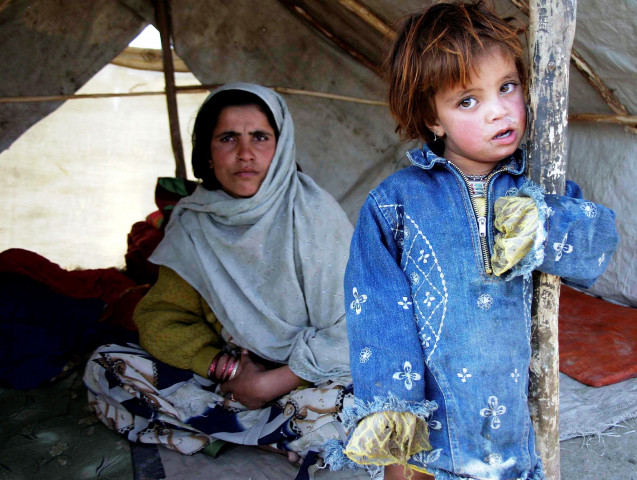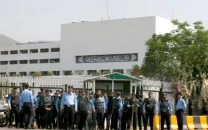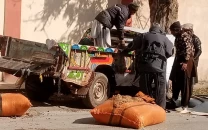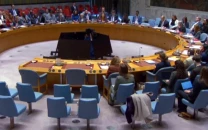Fear of repatriation troubles settled Afghan refugees
Most of them worry they will have to ‘re-migrate’ to their restive hometowns.

Fear of repatriation troubles settled Afghan refugees
Three decades is how long it took Abdur Rehman to settle in an alien country after fleeing his troubled homeland – and he is surely not ready to do it all over again.
Despite living in a Pakistani camp for 25 years and facing various problems, in terms of finance, health and water, the 55-year-old Afghan refugee is grateful. The idea of being repatriated to Afghanistan, however, is causing him sleepless nights; after all, he has done the math: he fears it will take him another 30 years to settle back in his restive hometown.
“It took 30 years of my life to reach this position where I can provide a shelter for my family; one of my sons is earning for us, while the other is going to school. If we go back to Afghanistan, it will take another 30 years to build a house and get jobs,” he said.
Rehman says he is happy living in Afghan Basti in Karachi with his wife and seven kids. He arrived in Pakistan 30 years ago from Imam Sahib, in Kunduz district, Afghanistan, after the former Soviet Union attacked his village.
“I get frightened whenever I hear that the Government of Pakistan is planning to send us back to our homes. Although we have many problems in the camp, we are happy,” he insists.
Rehman claims that his children, who grew up on the streets of the camp, will never be ready to go to Afghanistan, which they have not even seen yet. He also said that main issue of not returning back willingly is the security problem in his village
Haji Abdullah Shah Bukhari, the leader of Afghan refugees at the camp, said they are thankful to the Pakistani government for giving them shelter and respect. “We will definitely go back to our country if the government asks us to leave,” he said. However, he added, three generations of their families were born and bred in Pakistan and going back to Afghanistan will be a new migration for them.
Bukhari said that around 350,000 Afghan refugees are living in Sindh, with the majority in Karachi. “But most of the areas (in Afghanistan) are not safe and we have no homes left in our country,” he said.
Repatriation Coordinator Agha Azam at the Afghan Refugees Repatriation Cell told The Express Tribune that around 200,000 Afghan Refugees have voluntarily gone back to Afghanistan from Karachi since 2002. Since 2006, the number of registered repatriated Afghan refugees is 24,000, while around 70,000 registered Afghan refugees still reside in Karachi.
“We have a Voluntary Repatriation Center in Karachi where we issue route permits to those refugees who voluntarily want to go back to their country, which relieve them from unnecessary inquiries on the way to Chaman and Torkham borders,” said Azam.
Dunya Aslam Khan, the spokesperson of the United Nations High Commissioner for Refugees (UNHCR) in Pakistan, told The Express Tribune that, since January 2012, 3,000 refugees in Karachi have been voluntarily repatriated via the Chaman and Kandahar borders.
“We provide $150 per head to each family for financial assistance, which they receive at our encashment centers when they reach Afghanistan,” said Khan.
Khan further said that the UNHCR is in contact with the government of Pakistan to get an extension for Proof of Registration (PoR) Cards of the refugees, which were extended in 2009 by the National Database and Registration Authority (NADRA) and will expire on December 31 this year.
“The Ministry of State and Frontier Region has assured us that they will not expel registered Afghan refugees from Pakistan even after the expiry of their PoR cards.”
Published in The Express Tribune, July 28th, 2012.


















COMMENTS
Comments are moderated and generally will be posted if they are on-topic and not abusive.
For more information, please see our Comments FAQ